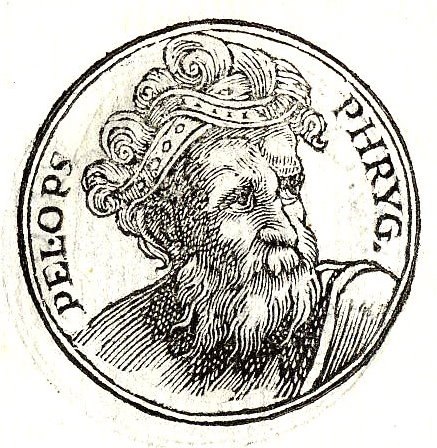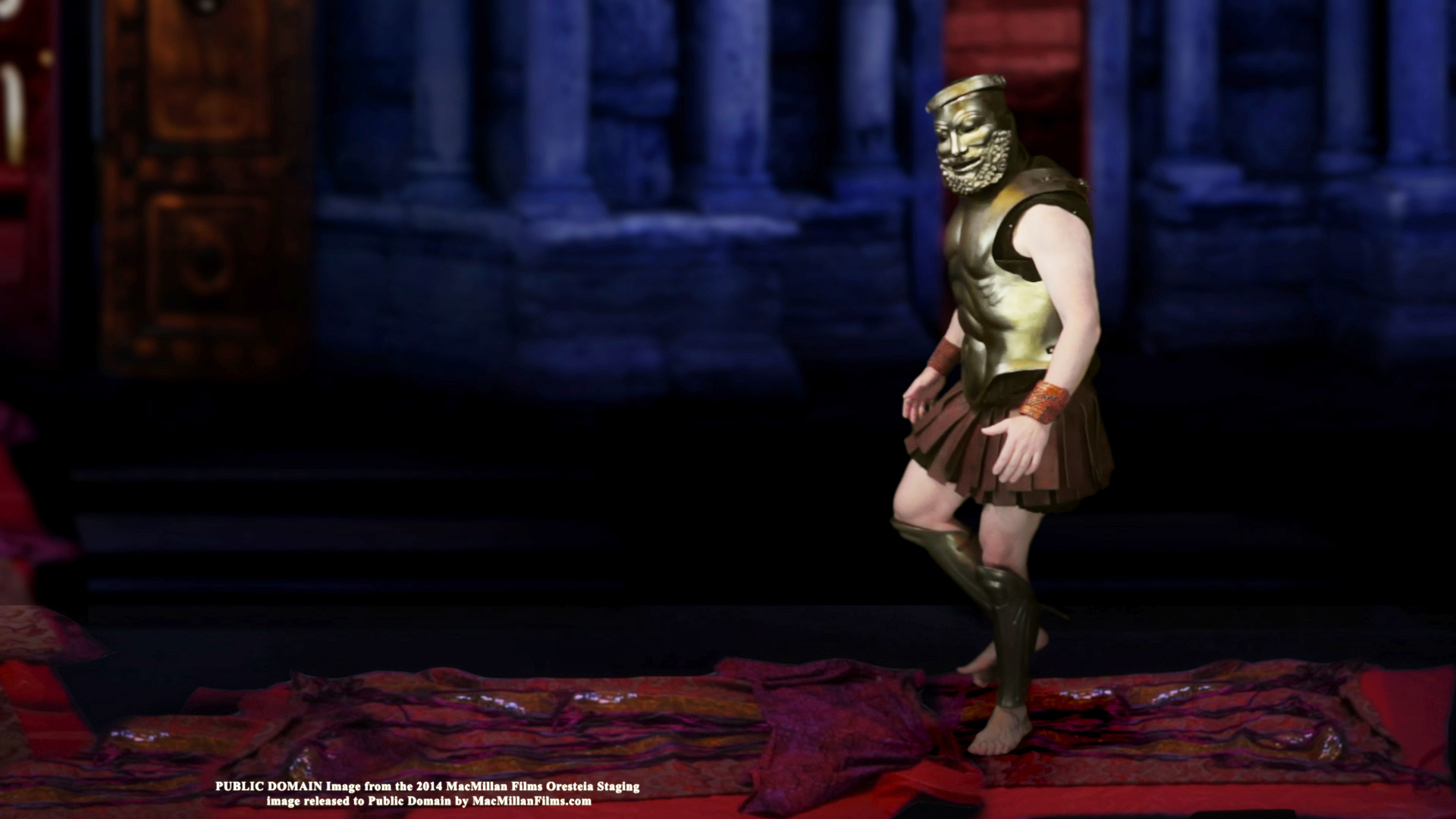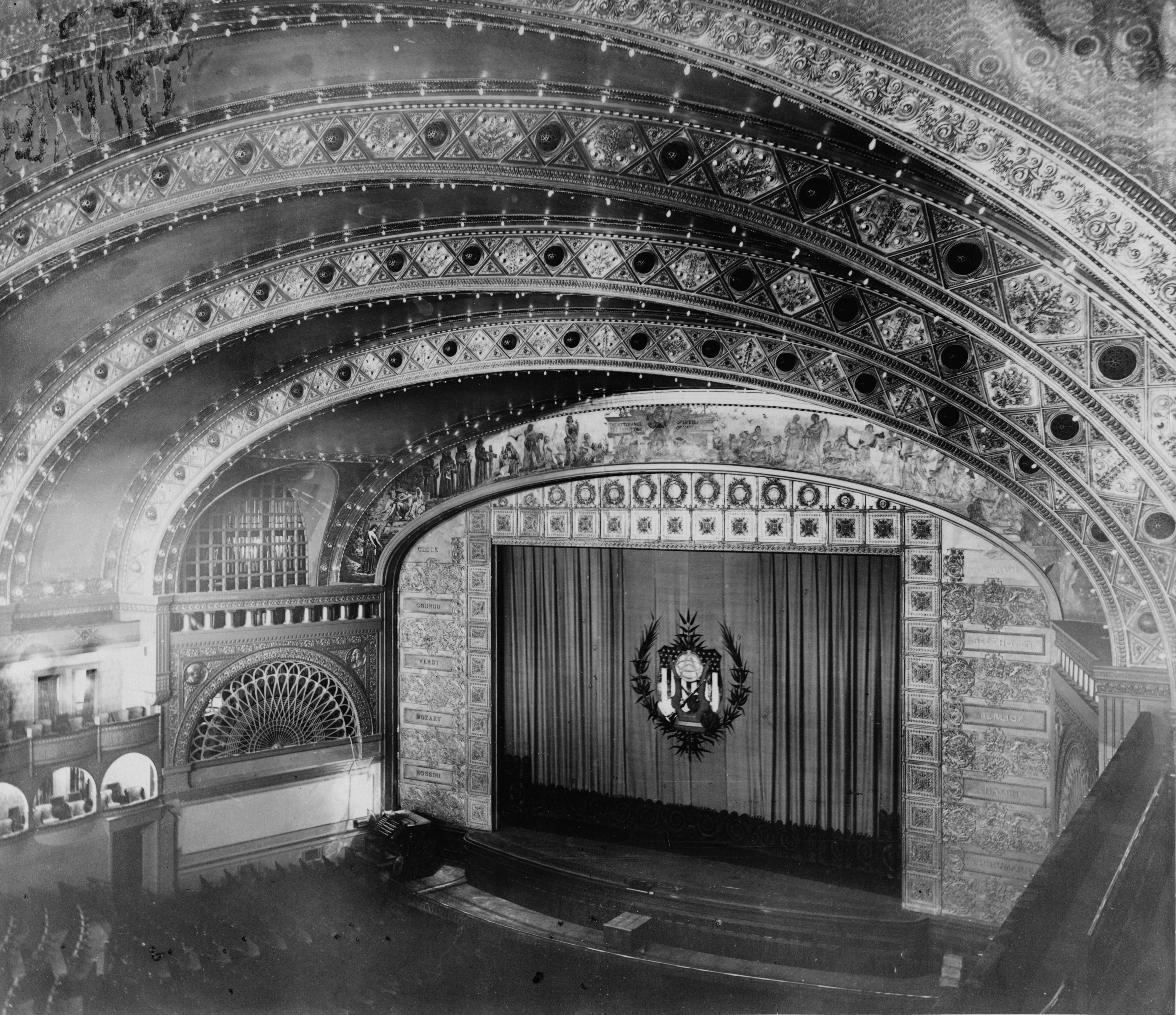|
Agamemnon (Seneca)
''Agamemnon'' is a '' fabula crepidata'' (Roman tragedy with Greek subject) of c. 1012 lines of verse written by Lucius Annaeus Seneca in the first century AD, which tells the story of Agamemnon, who was killed by his wife Clytemnestra in his palace after his return from Troy. Characters *''Thyestis umbra'' (Thyestes' ghost), uncle of Agamemnon *chorus *Clytemnestra, wife of Agamemnon *''nutrix'' (nurse) *Aegisthus, son of Thyestes, lover of Clytemnestra *Eurybates, messenger of Agamemnon. *Cassandra, Trojan princess, captive of Agamemnon *Agamemnon, king of Myceneae, and leader of the Greeks in the Trojan War. * Electra, daughter of Agamemnon and Clytemnestra *Strophius, king of Phocis, husband of Agamemnon's sister *Orestes (silent role), son of Agamemnon, brother of Electra *Pylades (silent role), son of Strophius, friend of Orestes The scene is laid partly inside and partly outside the palace of Agamemnon at Argos or Mycenae, on the day of the return of the king from his lon ... [...More Info...] [...Related Items...] OR: [Wikipedia] [Google] [Baidu] |
John Collier (painter)
The Honourable John Maler Collier RP (; 27 January 1850 – 11 April 1934) was a British painter and writer. He painted in the Pre-Raphaelite style, and was one of the most prominent portrait painters of his generation. Both of his marriages were to daughters of Thomas Henry Huxley. He was educated at Eton College, and he studied painting in Paris with Jean-Paul Laurens and at the Munich Academy starting in 1875. Family Collier was from a talented and successful family. His grandfather, John Collier, was a Quaker merchant who became a member of parliament. His father, Robert, (who was a member of parliament, Attorney General and, for many years, a full-time judge of the Privy Council) was created the first Lord Monkswell. He was also a member of the Royal Society of British Artists, and had artists' studios in his home at 7 Chelsea Embankment for the use of John and his wife Marion. John Collier's elder brother, the second Lord Monkswell, was Under-Secretary of State for ... [...More Info...] [...Related Items...] OR: [Wikipedia] [Google] [Baidu] |
Atreus
In Greek mythology, Atreus ( , ; from ἀ-, "no" and τρέω, "tremble", "fearless", gr, Ἀτρεύς ) was a king of Mycenae in the Peloponnese, the son of Pelops and Hippodamia, and the father of Agamemnon and Menelaus. Collectively, his descendants are known as Atreidai or Atreidae. Atreus and his twin brother Thyestes were exiled by their father for murdering their half-brother Chrysippus in their desire for the throne of Olympia. They took refuge in Mycenae, where they ascended to the throne in the absence of King Eurystheus, who was fighting the Heracleidae. Eurystheus had meant for their stewardship to be temporary, but it became permanent after his death in battle. According to most ancient sources, Atreus was the father of Pleisthenes, but in some lyric poets (Ibycus, Bacchylides) Pleisthenides (son of Pleisthenes) is used as an alternative name for Atreus himself. Atreides Atreides is a patronymic form of Atreus which refers to one of his sons—Agamemnon or ... [...More Info...] [...Related Items...] OR: [Wikipedia] [Google] [Baidu] |
Trojan War Literature
Trojan or Trojans may refer to: * Of or from the ancient city of Troy * Trojan language, the language of the historical Trojans Arts and entertainment Music * '' Les Troyens'' ('The Trojans'), an opera by Berlioz, premiered part 1863, part 1890 * The Trojan, a 1950s Jamaican sound system led by Duke Reid * Trojan Records, a British record label, founded in 1968 * "Trojans" (The Damned song), a song by The Damned on their 1985 album ''Phantasmagoria'' * ''Trojans'' (EP), by Atlas Genius, 2013 Other uses in arts and entertainment * ''Trojan'' (video game), 1986 * ''Trojan'', a 1991 novel by James Follett * ''Troy'', a 2004 historical war drama * "Trojan" (''Red Dwarf''), a 2012 episode of the TV comedy People * Trojan (surname), including a list of people with the name Places * Trojan, Gauteng, South Africa * Trojan, South Dakota U.S. * Trojan (mountain), on the border of Albania and Montenegro * Trojan Peak, a mountain in California Transportation and military * ... [...More Info...] [...Related Items...] OR: [Wikipedia] [Google] [Baidu] |
Plays By Seneca The Younger
Play most commonly refers to: * Play (activity), an activity done for enjoyment * Play (theatre), a work of drama Play may refer also to: Computers and technology * Google Play, a digital content service * Play Framework, a Java framework * Play Mobile, a Polish internet provider * Xperia Play, an Android phone * Rakuten.co.uk (formerly Play.com), an online retailer * Backlash (engineering), or ''play'', non-reversible part of movement * Petroleum play, oil fields with same geological circumstances * Play symbol, in media control devices Film * ''Play'' (2005 film), Chilean film directed by Alicia Scherson * ''Play'', a 2009 short film directed by David Kaplan * ''Play'' (2011 film), a Swedish film directed by Ruben Östlund * ''Rush'' (2012 film), an Indian film earlier titled ''Play'' and also known as ''Raftaar 24 x 7'' * ''The Play'' (film), a 2013 Bengali film Literature and publications * ''Play'' (play), written by Samuel Beckett * ''Play'' (''The New York Times'' ... [...More Info...] [...Related Items...] OR: [Wikipedia] [Google] [Baidu] |
Lucius Accius
Lucius Accius (; 170 – c. 86 BC), or Lucius Attius, was a Roman tragic poet and literary scholar. Accius was born in 170 BC at Pisaurum, a town founded in the Ager Gallicus in 184 BC. He was the son of a freedman and a freedwoman, probably from Rome. The year of his death is unknown, but he must have lived to a great age, since Cicero (born 106 BC, hence 64 years younger) writes of having conversed with him on literary matters. Literary works Accius was a prolific writer and enjoyed a very high reputation. The titles and considerable fragments (about 700 lines) of some fifty plays have been preserved. Judging from the titles and fragments, scholars have surmised that most, if not all, of these poems were tragic in nature, although Pliny the Younger ranks him among the erotic poets. His career as a poet can be traced over the course of 36 years from B.C. 140, to B.C. 104. Most of his poetical works were imitations or free translations of the Greek, especially Aeschylus. The ... [...More Info...] [...Related Items...] OR: [Wikipedia] [Google] [Baidu] |
Livius Andronicus
Lucius Livius Andronicus (; el, Λούκιος Λίβιος Ανδρόνικος; c. 284 – c. 204 BC) was a Greco-Roman dramatist and epic poet of the Old Latin period during the Roman Republic. He began as an educator in the service of a noble family by translating Greek works into Latin, including Homer's ''Odyssey''. The works were meant, at first, as educational devices for the school in which he founded. He also wrote works for the stage—both tragedies and comedies—which are regarded as the first dramatic works written in the Latin language. His comedies were based on Greek New Comedy and featured characters in Greek costume. Thus, the Romans referred to this new genre by the term comoedia palliata (fabula palliata). The Roman biographer Suetonius later coined the term "half-Greek" of Livius and Ennius (referring to their genre, not their ethnic backgrounds). The genre was imitated by the next dramatists to follow in Andronicus' footsteps and on that account he is r ... [...More Info...] [...Related Items...] OR: [Wikipedia] [Google] [Baidu] |
Ion Of Chios
Ion of Chios (; grc-gre, Ἴων ὁ Χῖος; c. 490/480 – c. 420 BC) was a Greek writer, dramatist, lyric poet and philosopher. He was a contemporary of Aeschylus, Euripides and Sophocles. Of his many plays and poems only a few titles and fragments have survived. He also wrote some prose works, including a Pythagorean text, the ''Triagmos'', of which a few fragments survive. Life He was the son of Orthomenes, and was surnamed the son of Xuthus: probably a nickname alluding to Xuthus, the father of the mythical Ion. When very young he went to Athens, where he enjoyed the society of Cimon, of whom he left laudatory notices in some of his works which are quoted by Plutarch. Plutarch informs us that Ion severely criticised Pericles, who is said to have been his rival in love. Ion was familiarly acquainted with Aeschylus, if we may believe an anecdote related by Plutarch, but he did not come forward as a tragedian till after Aeschylus' death. We also learn from Ion himself that h ... [...More Info...] [...Related Items...] OR: [Wikipedia] [Google] [Baidu] |
Aeschylus
Aeschylus (, ; grc-gre, Αἰσχύλος ; c. 525/524 – c. 456/455 BC) was an ancient Greek tragedian, and is often described as the father of tragedy. Academic knowledge of the genre begins with his work, and understanding of earlier Greek tragedy is largely based on inferences made from reading his surviving plays. According to Aristotle, he expanded the number of characters in the theatre and allowed conflict among them. Formerly, characters interacted only with the chorus.The remnant of a commemorative inscription, dated to the 3rd century BC, lists four, possibly eight, dramatic poets (probably including Choerilus, Phrynichus, and Pratinas) who had won tragic victories at the Dionysia before Aeschylus had. Thespis was traditionally regarded the inventor of tragedy. According to another tradition, tragedy was established in Athens in the late 530s BC, but that may simply reflect an absence of records. Major innovations in dramatic form, credited to Aeschylus by Aristotle ... [...More Info...] [...Related Items...] OR: [Wikipedia] [Google] [Baidu] |
Agamemnon (Aeschylus)
The ''Oresteia'' ( grc, Ὀρέστεια) is a trilogy of Greek tragedy, Greek tragedies written by Aeschylus in the 5th century BCE, concerning the murder of Agamemnon by Clytemnestra, the murder of Clytemnestra by Orestes, the trial of Orestes, the end of the curse on the House of Atreus and the pacification of the Erinyes. The trilogy—consisting of ''Oresteia#Agamemnon, Agamemnon'' (), ''Oresteia#The Libation Bearers, The Libation Bearers'' (), and ''Oresteia#The Eumenides, The Eumenides'' ()—also shows how the Greek gods interacted with the characters and influenced their decisions pertaining to events and disputes. The only extant example of an ancient Greece, ancient Greek theatre trilogy, the ''Oresteia'' won first prize at the Dionysia festival in 458 BCE. The principal themes of the trilogy include the contrast between revenge and justice, as well as the transition from personal Feud, vendetta to organized litigation. ''Oresteia'' originally included a satyr play, '' ... [...More Info...] [...Related Items...] OR: [Wikipedia] [Google] [Baidu] |
Proscenium
A proscenium ( grc-gre, προσκήνιον, ) is the metaphorical vertical plane of space in a theatre, usually surrounded on the top and sides by a physical proscenium arch (whether or not truly "arched") and on the bottom by the stage floor itself, which serves as the frame into which the audience observes from a more or less unified angle the events taking place upon the stage during a theatrical performance. The concept of the fourth wall of the theatre stage space that faces the audience is essentially the same. It can be considered as a social construct which divides the actors and their stage-world from the audience which has come to witness it. But since the curtain usually comes down just behind the proscenium arch, it has a physical reality when the curtain is down, hiding the stage from view. The same plane also includes the drop, in traditional theatres of modern times, from the stage level to the "stalls" level of the audience, which was the original meaning of t ... [...More Info...] [...Related Items...] OR: [Wikipedia] [Google] [Baidu] |
Nauplius (mythology)
In Greek mythology, Nauplius ( grc, Ναύπλιος, "Seafarer") is the name of one (or more) mariner heroes. Whether these should be considered to be the same person, or two or possibly three distinct persons, is not entirely clear. The most famous Nauplius, was the father of Palamedes, called Nauplius the Wrecker, because he caused the Greek fleet, sailing home from the Trojan War, to shipwreck, in revenge for the unjust killing of Palamedes. This Nauplius was also involved in the stories of Aerope, the mother of Agamemnon and Menelaus, and Auge, the mother of Telephus. The mythographer Apollodorus says he was the same as the Nauplius who was the son of Poseidon and Amymone. Nauplius was also the name of one of the Argonauts, and although Apollonius of Rhodes made the Argonaut a direct descendant of the son of Poseidon, the Roman mythographer Hyginus makes them the same person. However, no surviving ancient source identifies the Argonaut with the father of Palamedes. Son of Pose ... [...More Info...] [...Related Items...] OR: [Wikipedia] [Google] [Baidu] |
Iphigenia
In Greek mythology, Iphigenia (; grc, Ἰφιγένεια, , ) was a daughter of King Agamemnon and Queen Clytemnestra, and thus a princess of Mycenae. In the story, Agamemnon offends the goddess Artemis on his way to the Trojan War by hunting and killing one of Artemis' sacred stags. She retaliates by preventing the Greek troops from reaching Troy unless Agamemnon kills his eldest daughter, Iphigenia, at Aulis as a human sacrifice. In some versions, Iphigenia dies at Aulis, and in others, Artemis rescues her. In the version where she is saved, she goes to the Taurians and meets her brother Orestes.Evans (1970), p. 141 Name "Iphigenia" means "strong-born," "born to strength," or "she who causes the birth of strong offspring." Iphianassa Iphianassa () is the name of one of Agamemnon's three daughters in Homer's ''Iliad'' (ix.145, 287) The name Iphianassa may be simply an older variant of the name Iphigenia. "Not all poets took Iphigenia and Iphianassa to be two names for the s ... [...More Info...] [...Related Items...] OR: [Wikipedia] [Google] [Baidu] |







